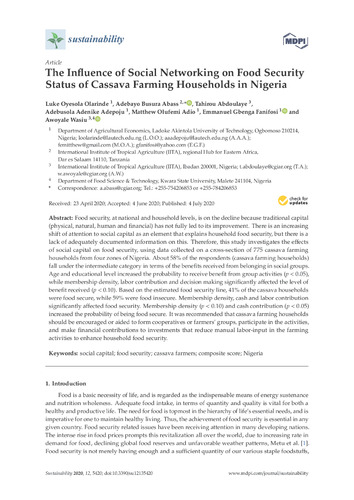The influence of social networking on food security status of cassava farming households in Nigeria
Abstract
Food security, at national and household levels, is on the decline because traditional capital (physical, natural, human and financial) has not fully led to its improvement. There is an increasing shift of attention to social capital as an element that explains household food security, but there is a lack of adequately documented information on this. Therefore, this study investigates the effects of social capital on food security, using data collected on a cross-section of 775 cassava farming households from four zones of Nigeria. About 58% of the respondents (cassava farming households) fall under the intermediate category in terms of the benefits received from belonging in social groups. Age and educational level increased the probability to receive benefit from group activities (p < 0.05), while membership density, labor contribution and decision making significantly affected the level of benefit received (p < 0.10). Based on the estimated food security line, 41% of the cassava households were food secure, while 59% were food insecure. Membership density, cash and labor contribution significantly affected food security. Membership density (p < 0.10) and cash contribution (p < 0.05) increased the probability of being food secure. It was recommended that cassava farming households should be encouraged or aided to form cooperatives or farmers’ groups, participate in the activities, and make financial contributions to investments that reduce manual labor-input in the farming activities to enhance household food security.

